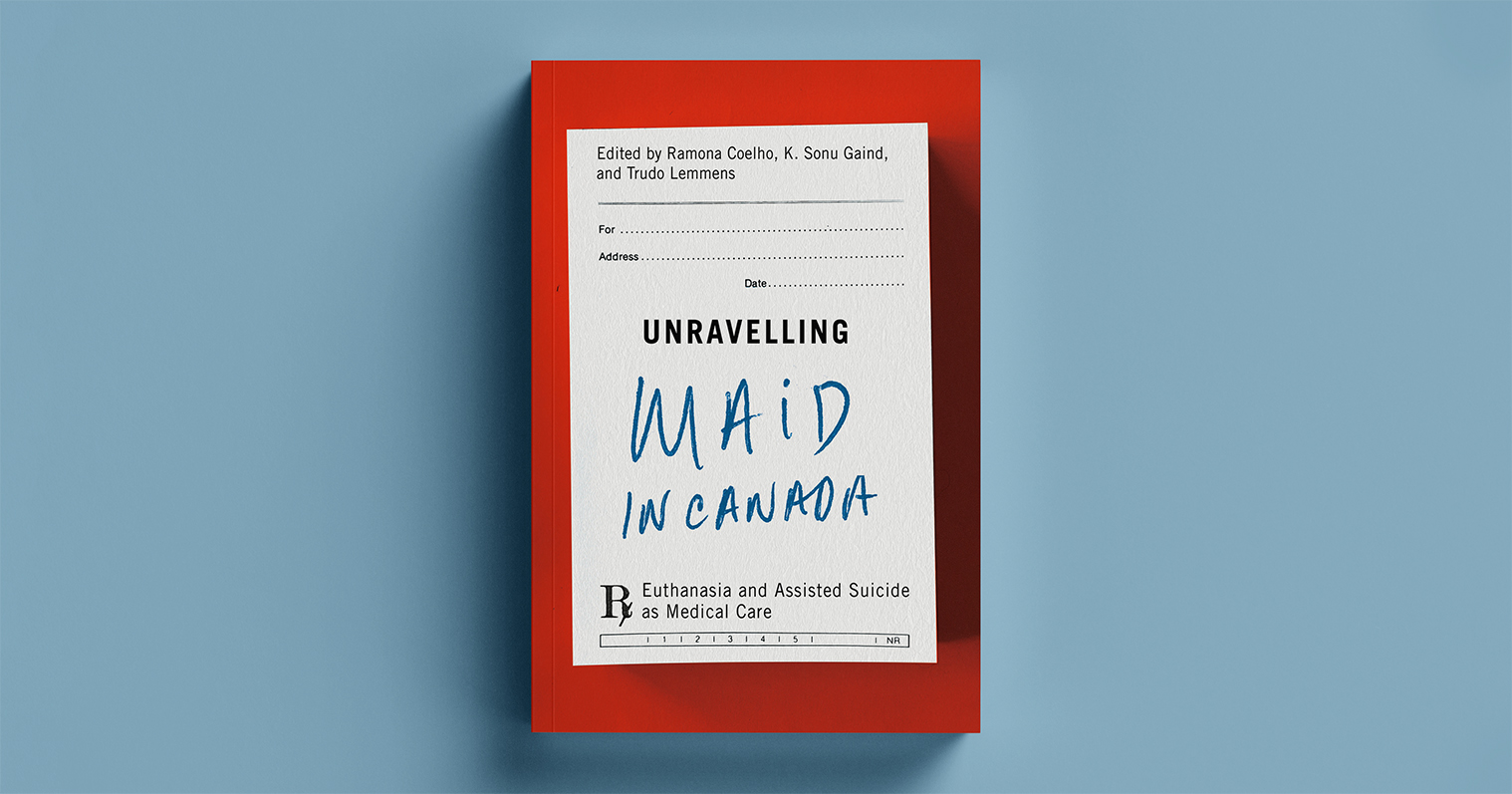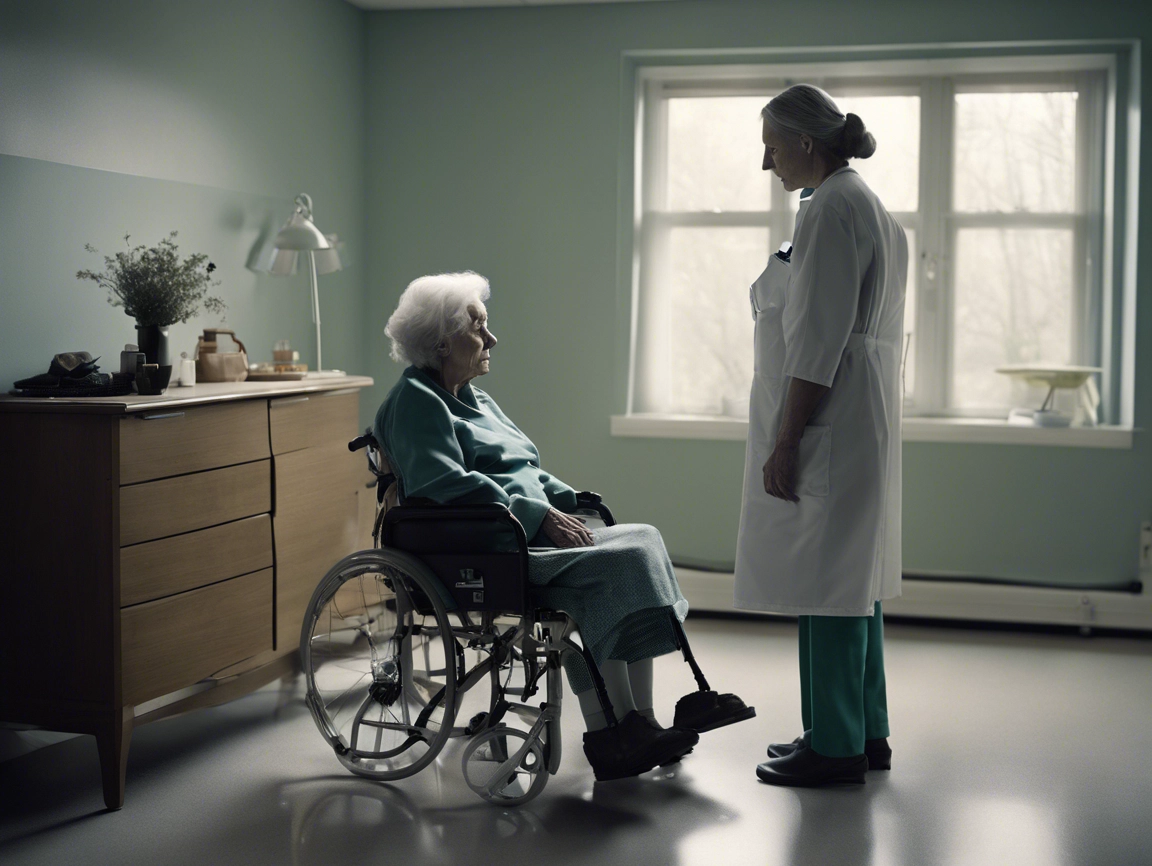Dear Friends,
A few short years ago, when we were first confronted with the possibility of euthanasia, many warned of a slippery slope that would lead to fearful unknown conclusions. Experience has shown that a better analogy would be that of falling dominoes, where it becomes obvious what reactions are to follow in this terrible chain of events.
For this is nothing like a sudden impetuous slide. Rather, it is a methodical succession of seemingly inevitable events. The excruciatingly slow progress of the destruction witnessed is almost the worst part. Continue reading…
Make euthanasia unimaginable.
Sincerely,
Catherine Ferrier
President
ALLIANCE NEWS:
- Press Release (March 9, 2020): Alert from a growing number of Canadian physicians – “We are being bullied to participate in Medical Assistance in Dying”
- Press release (26 February, 2020): BILL C-7 and broadening Medical Assistance in Dying (MAiD) in Canada.
Do we collectively seek the most permissive voluntary euthanasia program in the world? - Press release (27 January 2020): Quebec legislation regarding medical assistance in dying
CANADIAN NEWS:
Legislation regarding medical assistance in dying:
- In response to the motion filed by Justice Minister David Lametti, requesting an extension of the deadline, a four-month extension for Parliament to refine and pass Bill C-7 in response to the Truchon decision has been granted. The new deadline is July 11, 2020. Judge Christine Baudoin approved Lametti’s motion on March 2 but allows those whose deaths are not “reasonably foreseeable” to apply for an exemption through the courts.
- On Jan. 13, Ottawa launched an online consultation that closed on Jan. 27, and which solicits the public’s views about: eligibility for MAiD; advanced requests for MAiD (not currently allowed); and what safeguards should be implemented. Of note, is the fact that the online questionnaire had no mechanism to prevent multiple responses from the same computer. This completely invalidates any statistical analysis of the nearly 300,000 responses.
Federal government asks Canadians for their views on medical assistance in dying
Expansion of MAiD:
- Medical assistance in dying will be extended to people not at the end of their life
- Quebec backtracks on expanding medical aid in dying to people with mental illness
- Letter to Prime Minister Justin Trudeau on Proposed Changes to Federal Legislation for Medical Assistance in Dying (MAiD)
In his letter, the Most Reverend Richard Gagnon, Archbishop of Winnipeg and President of the Canadian Conference of Catholic Bishops (CCCB), states: “We strongly urge the Government of Canada, before proceeding further, to undertake a more extensive, thorough, impartial, and prolonged consultation on the question, in order to ensure all pertinent factors – social, medical, and moral – are carefully and thoroughly considered,” and adds “Palliative care, which has yet to become fully realized and accessible in our own country, offers a compelling answer – the only respectful, comprehensive and ethical alternative to the problem the government is trying to address.”
News from Quebec:
- Quebec to seek consensus on offering medical aid in dying to mentally ill
- Collège des Médecins du Québec and medical aid in dying for people with mental disabilities: The College of Physicians welcomes government decision to hold broad public consultation
News from B.C.:
- Delta Hospice Society loses its funding and will not be able to provide hospice palliative care for standing its ground against providing medically assisted death at the Irene Thomas Hospice despite incredible pressure.
- B.C. pulls $1.5M in funding from Metro Vancouver hospice for refusing to allow assisted dying
A heated debate about whether a 10-bed hospice in Delta, B.C., should offer assisted suicide, ended this week when the Province decided to no longer provide government funding to the Delta Hospice Society for refusing to provide medical assistance in dying (MAiD).Delta Hospice Society, the non-profit behind the Irene Thomas Hospice, had been facing pressure from the Fraser Health Authority to offer so-called Medical Aid in Dying (MAiD) to its patients by February despite the fact that there is already a facility in close proximity that offers euthanasia.
The non-profit says offering a lethal injection to its patients runs contrary to its constitution, while Fraser Health holds the position that patients have a right to it. The hospice is not alone in its stance on assisted suicide. Both the Canadian Hospice Palliative Care Association and the Canadian Society of Palliative Care Physicians released a joint statement at the end of 2019 saying a hospice is not an appropriate place to end the lives of patients. The hospice has said that it is prepared to give up $750,000 a year of government funding in order to fall below the 50 per cent funding threshold and be able to opt out of providing MAID but has received no response.
Leonie Herx, president of the Canadian Society of Palliative Care Physicians, told CTVNews.ca that MAID is “diametrically opposed” to palliative care.
Organ donation:
In Canada, Euthanasia as “Boon” to Organ Donation
INTERNATIONAL NEWS:
- World Medical Association welcomes the Pope’s message for world day of the sick
- Belgian doctors go on trial for murder for helping woman end life
DOCTORS’ VOICES:
-
A recent cohort study on MAiD published in the CMAJ elicited critiques from concerned physicians regarding the validity of the methodology of the study and the incredible impact such ‘conclusions from potentially misleading data’ would have on the public.
-
Georgia Vrakas, a Psychologist and Associate Professor in the Department of Psychoeducation at the Université du Québec à Trois-Rivières affirms the importance of palliative care and the psychological harm of offering euthanasia so readily to those with mental illnesses:
“Moving forward with medical aid in dying in such cases is like saying to those people who are suffering: “Your life is not worth enough for us to invest in resources and do everything we can to help you”.”
COMMENTARIES:
- Opinion: It isn’t too late to stop state-sanctioned killing in Canada
- Medical aid in dying: an open letter from a schizophrenic
A Courtesy translation of “Aide médicale à mourir: lettre ouverte d’une schizophrène” provided by the Physicians’ Allliance against Euthanasia. - Why the federal rush to amend assisted dying legislation is risky
- Limiting the right to assisted death was the right thing to do. It still is.
- BRAUN: Will medical aid in dying terminate compassion for some?
“The day will come when we’ll see a person in a wheelchair, with whatever disability, and rather than think, ‘Can I be of any help to them?’ we’re going to think, ‘Why would they do that to other people and to society? Why wouldn’t that person move on?’
“That’s not a subtle shift. That’s a profound shift in how we view human frailness, illness, vulnerability,” Bowman added.
- Opinion: Canada must learn lessons from Belgium on assisted dying.
Expanding our current MAID law in haste is fraught with risks. - Charles Lewis: Emergency brakes for slippery slope
“… we need to think of those who cannot get good palliative care and what it may mean for them.”
- To kill — or not to kill? That is the question. An answer for a Dying with Dignity clinical advisor. By Sean Murphy, Protection of Conscience Project
- Proper palliative care remains elusive in Canada
- Archbishop Christian Lépine’s pastoral message for the 28th World Day of the Sick
On Wednesday, Feb. 5, 2020, Archbishop Christian Lépine delivered a pastoral message for the 28th World Day of the Sick.
EVENTS:
- 12th annual conference of the Canadian Federation of Catholic Physicians & Societies:
Montreal, May 1-3, 2020
This year’s theme, Wonderfully Made: Technology for Patient Care, explores the contribution of technology to healing, as well as the challenges it brings. Of interest to doctors of any or no faith.
Medical students please apply for the Dave McCann scholarship (deadline March 31, 2020). - CSPCP Advanced Learning in Palliative Medicine
May 28-30, Hamilton ON - 23rd International Congress on Palliative Care: Pall 2020
October 13-16, 2020, Montreal
Early registration before March 31st, 2020 - COD International Medical Ethics Summit 2020:
March 25, 2020, Toronto - Euthanasia and Vulnerability: A Catholic Response to MAiD
Hosted by the Newman Centre of McGill University
March 21, 2020
RESOURCES (In French):
- Cahiers francophones de soins palliatifs– Vol 19 (2) – 2019
- Soins palliatifs. Accompagner pour vivres
Par Jean-Marc Barreau
Éditions Médiaspaul, 2017, 288 p. - La cigogne de Minerve. Philosophie, culture palliative et société
Par Louis-André Richard
Presses de l’Université Laval, 2018, 452 p.
IN THE LITERATURE:
- The New Bioethics (2019) Medical Acts and Conscientious Objection: What Can a Physician be Compelled to Do?25:3,262-282. Nathan K. Gamble & Michal Pruski.
- Psychiatric Times (2019) PAS Versus Involuntary Commitment: Is There a Moral Dilemma? Ronald W. Pies, MD, Annette L. Hanson, MD, Mark S. Komrad, MD and Cynthia M. A. Geppert, MD, MPH
- Psychiatric Times (2019) Psychiatrists Must Prevent Suicide, Not Provide It. Cynthia M. A. Geppert, MD, MPH, Mark S. Komrad, MD, Ronald W. Pies, MD and Annette L. Hanson, MD
- Journal of Palliative Care (2020) The Path of Cicely Saunders: The “Peculiar Beauty” of Palliative Care (Article Commentary) Miccinesi, G., Caraceni, A., Garetto, F., et al.
VOLUNTEERS NEEDED!
The Physicians’ Alliance against Euthanasia is looking for volunteers to translate texts from English to French. Professional translation certification is not mandatory, but an excellent level of written French and some experience with translation is required. If you would like to support our work by volunteering as a translator, please write to us at info@collectifmedecins.org.


